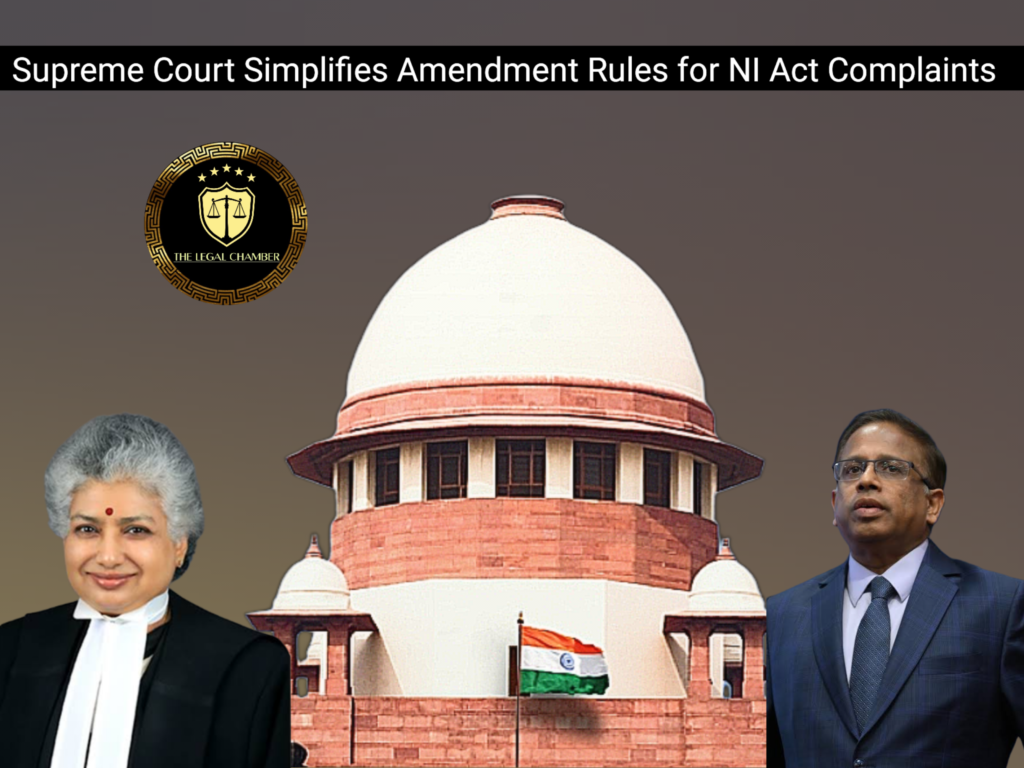
The Supreme Court held that a criminal complaint can be amended post-cognizance if it cures a curable infirmity and causes no prejudice to the accused. The amendment should not alter the complaint’s fundamental nature. The test of prejudice is the cardinal factor, and procedural rules are subservient to the interests of justice.
Facts Of The Case:
The appellant, Bansal Milk Chilling Centre, filed a complaint under Section 138 of the Negotiable Instruments Act, 1881, alleging that three cheques issued by the respondents, Rana Milk Food Private Ltd., for a sum of ₹14 lakhs were dishonored. The complaint stated the transaction was for the purchase of “Desi Ghee (milk products).” After summons were issued and the complainant’s chief-examination was concluded, the appellant sought to amend the complaint, claiming a typographical error. The amendment application requested to change the description of the goods supplied from “Desi Ghee (milk products)” to “milk.” The respondents opposed the amendment, arguing it was impermissible after cognizance and that it altered the complaint’s nature, suggesting it was a tactic to avoid GST liability. The Trial Court allowed the amendment, but the High Court set aside this order, accepting the respondents’ objections. The Supreme Court ultimately allowed the appeal, restoring the Trial Court’s order permitting the amendment.
Procedural History:
The procedural history began with the appellant filing a complaint under Section 138 of the Negotiable Instruments Act. The Trial Court allowed the appellant’s application to amend the complaint to correct a purported typographical error regarding the goods supplied. The respondents then challenged this order before the High Court under Section 482 of the Cr.P.C. The High Court allowed the petition, setting aside the Trial Court’s order and disallowing the amendment. The appellant subsequently filed a special leave petition in the Supreme Court, which granted leave, heard the appeal, and ultimately set aside the High Court’s judgment, thereby restoring the Trial Court’s order permitting the amendment.
READ ALSO :Can’t Go Straight to the Magistrate? Supreme Court Explains the Right Way to File an FIR When Police Refuse
Court Observation:
The Supreme Court observed that a criminal court possesses the power to allow amendments to a complaint even after cognizance has been taken, provided the amendment is to cure a curable infirmity and causes no prejudice to the accused. It emphasized that procedural rules are handmaidens of justice and should not be used to defeat it. The Court found the amendment, which sought to correct the description of goods supplied from “Desi Ghee (milk products)” to “milk,” was formal in nature and did not alter the fundamental character of the complaint. It held that the High Court erred in delving into the potential GST implications, as that was not its concern at that stage, and concluded that allowing the amendment at the current trial stage would cause no prejudice to the accused.